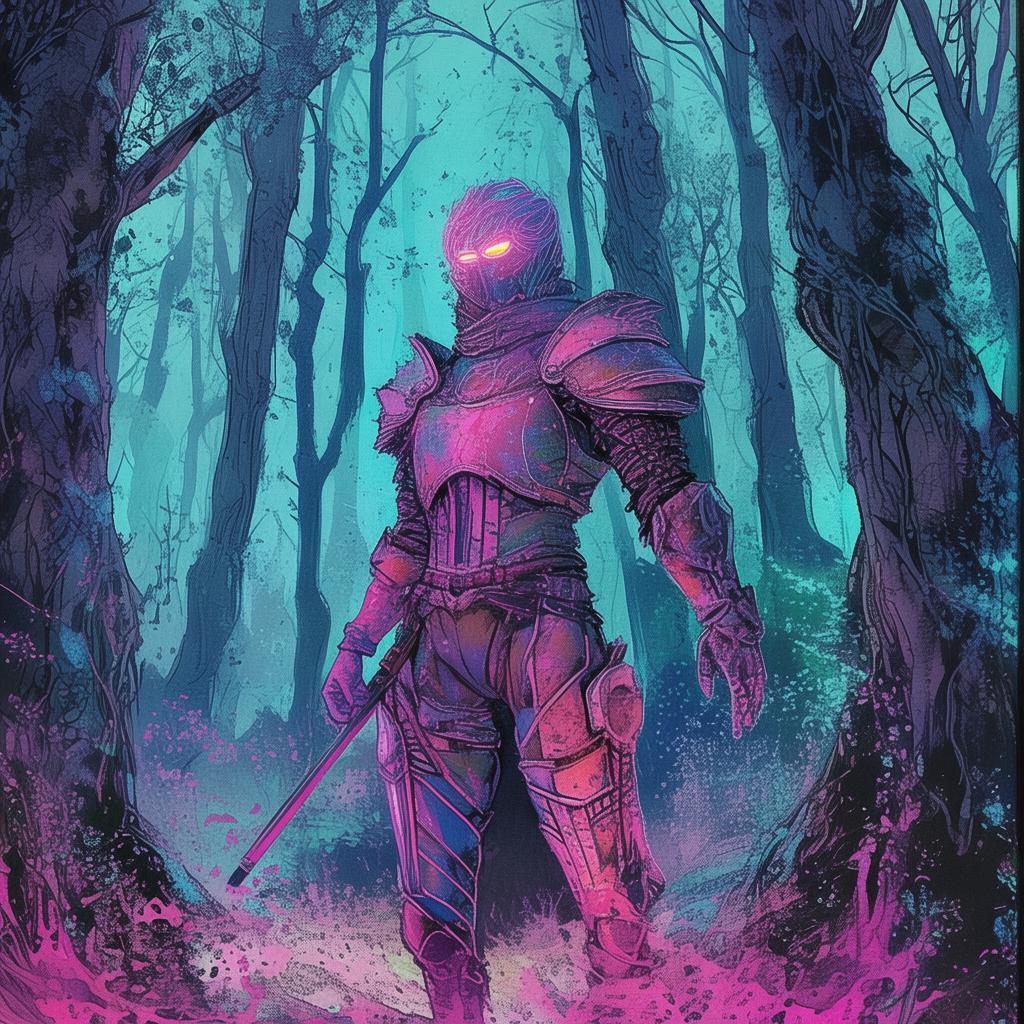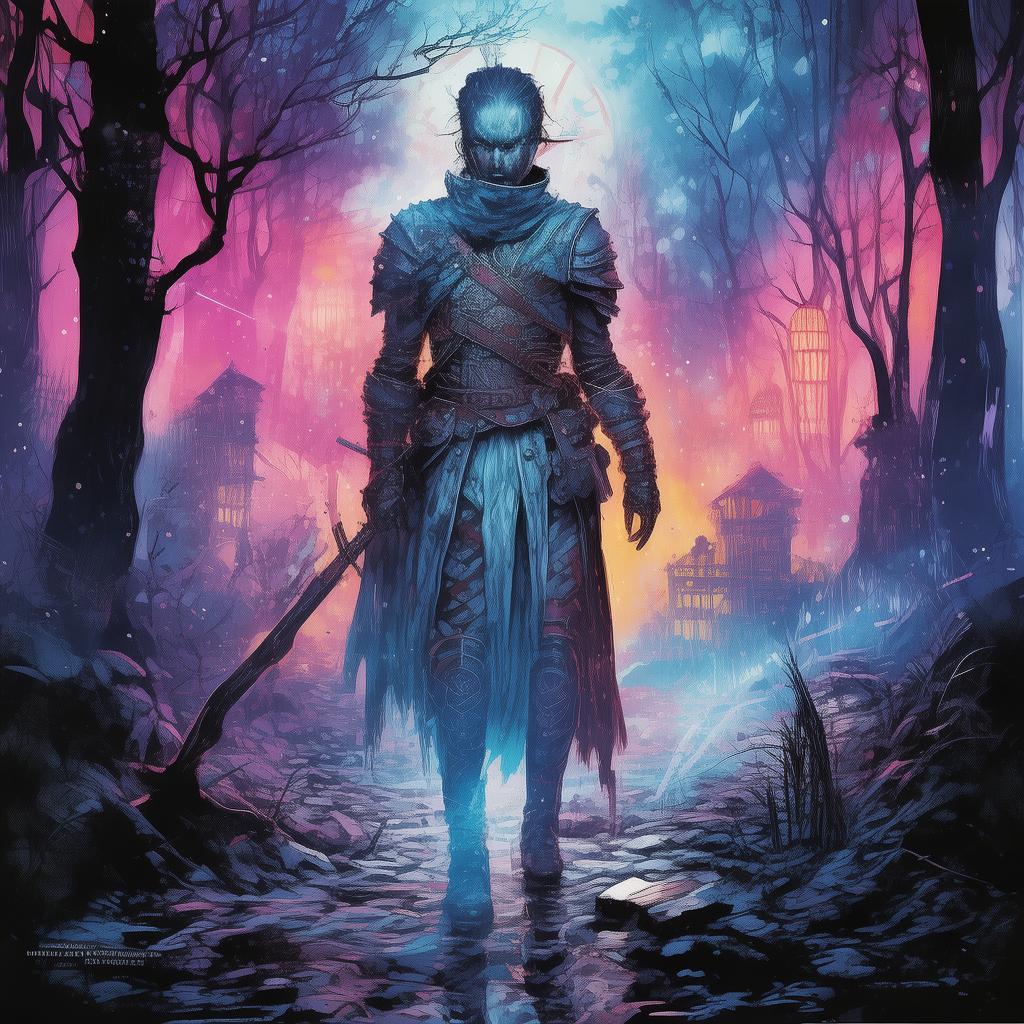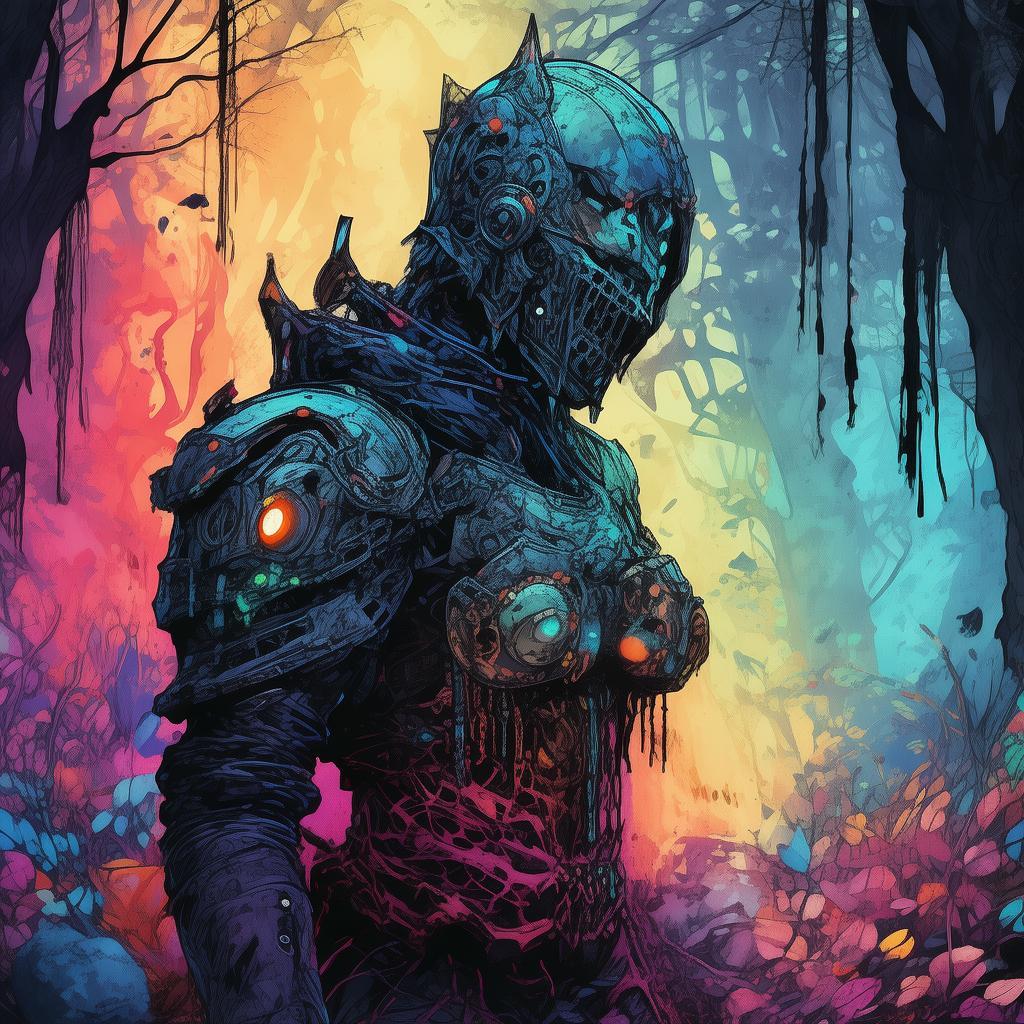The Labyrinth of Penance
The town of Eldoria was shrouded in an aura of serenity, its cobblestone streets echoing the soft whispers of its long-forgotten legends. Among the townsfolk, the Church of the Resplendent Altar stood as a beacon of faith and hope, its towering spire piercing the clouds. The head of this church was a man named Father Anselm, a man whose life was a tapestry woven from the threads of piety and sin.
Father Anselm was revered for his wisdom and his unwavering commitment to his flock. Yet, there was a shadow that clung to him, a secret that no one, not even the most fervent of believers, could imagine. It was a sin so great that it defiled the very sanctity of his calling—a sin that could not be confessed, for it was a sin against the very soul of his faith.
The story of Father Anselm's sin began many years ago, when he was a young boy, full of dreams and aspirations. He was an only child, raised by parents who had a fervent devotion to the Church. As he grew, he found solace in the hallowed walls of the church, his heart filled with the desire to become a priest, to serve the divine, and to be the guiding light in the lives of others.
One fateful night, as the church bells tolled the hour of midnight, a mysterious figure entered the sanctuary. It was a beggar, ragged and weary, seeking shelter from the cold. Father Anselm, moved by compassion, welcomed the beggar into the warmth of the church. But as the beggar stepped through the door, a shiver of dread ran down Father Anselm's spine.
In the flickering light of the sanctuary, the beggar's eyes held a malevolent glint, and a voice echoed in Father Anselm's mind, a voice that spoke of dark secrets and forbidden knowledge. The beggar whispered tales of a hidden chamber within the church, a place where the most heinous of sins were hidden and protected. The voice promised that if Father Anselm were to uncover this chamber, he would gain immense power and knowledge.
In the depths of his soul, Father Anselm felt a tug of temptation. The thought of such power was intoxicating, and for a moment, he considered the possibility. But as the beggar's words faded, the voice of reason returned, and he banished the thought from his mind. The beggar, sensing the priest's resolve, vanished as suddenly as he had appeared.
Years passed, and Father Anselm rose through the ranks of the Church, becoming a beloved figure to the people of Eldoria. Yet, the shadow of that night remained, a silent witness to the sin he had narrowly avoided. He dedicated his life to serving the Church, but the knowledge of the hidden chamber and the forbidden power it promised never left him.
One day, a series of misfortunes befell the town. Plagues, droughts, and storms plagued Eldoria, and the people turned to their priest for answers and guidance. Father Anselm, torn between his duty to his flock and the forbidden knowledge that lingered in the shadows of his mind, found himself at a crossroads.
In a moment of weakness, Father Anselm succumbed to the temptation of the beggar's voice. He sought out the hidden chamber, believing that the power within would protect his people and restore peace to Eldoria. But as he delved deeper into the labyrinthine corridors of the church, he discovered that the power was not what he had imagined.
Instead of a source of protection, the chamber was a place of darkness and despair, where the sins of the past were entombed. The power was not to be wielded by a man of faith, but by one who had already sold his soul to the devil. Father Anselm realized too late that he had become the very thing he had sought to avoid—a sinner.
The power of the chamber corrupted Father Anselm, and he was soon enveloped by an insatiable desire for more. He became a figure of fear and loathing, a man who sought to control and manipulate the lives of others. Yet, as he delved deeper into his own darkness, he also became more and more aware of the pain and suffering he was inflicting upon his flock.
In a moment of profound despair, Father Anselm confessed his sin to his closest confidant, the Bishop of Eldoria. The Bishop, a man of great wisdom and compassion, listened to the priest's tale of woe with a heavy heart. He knew that the sin was great, but he also knew that redemption was possible.
The Bishop guided Father Anselm through a grueling process of penance, a journey that would test the limits of his faith and his humanity. It was a journey that would take him through the most desolate parts of the church, where the sins of the past were hidden away. It was a journey that would force him to confront the darkest parts of his soul.
As Father Anselm walked the labyrinthine corridors, he encountered the spirits of those who had succumbed to the same temptation he had faced. They were wraiths, bound to the chamber by their own sins, forever trapped in a cycle of despair and corruption. Father Anselm, moved by their plight, vowed to break the cycle and free them from their eternal punishment.

The journey was arduous, and Father Anselm often questioned whether he could ever overcome the darkness that had consumed him. But as he continued to walk the path of penance, he began to understand that the power he sought was not a source of control, but a source of redemption.
In the end, Father Anselm's penance was complete. He had faced the darkness within himself and had emerged stronger and more resolute. The spirits of the chamber were freed, and the power of the chamber was returned to its rightful place, where it could no longer corrupt the hearts of men.
Father Anselm returned to the Church of the Resplendent Altar, a changed man. He had faced his sin and had found a way to overcome it. His journey of penance had not only saved his soul but had also saved the souls of his flock. From that day forward, he dedicated his life to serving his people with a renewed sense of purpose and a profound understanding of the true nature of faith.
The Labyrinth of Penance became a legend in Eldoria, a story of a man who had faced his darkest fears and had emerged victorious. It was a tale that spoke of the eternal nature of human guilt and the possibility of redemption. And so, Father Anselm's story lived on, a beacon of hope in a world where sin and forgiveness were ever-present.
✨ Original Statement ✨
All articles published on this website (including but not limited to text, images, videos, and other content) are original or authorized for reposting and are protected by relevant laws. Without the explicit written permission of this website, no individual or organization may copy, modify, repost, or use the content for commercial purposes.
If you need to quote or cooperate, please contact this site for authorization. We reserve the right to pursue legal responsibility for any unauthorized use.
Hereby declared.









